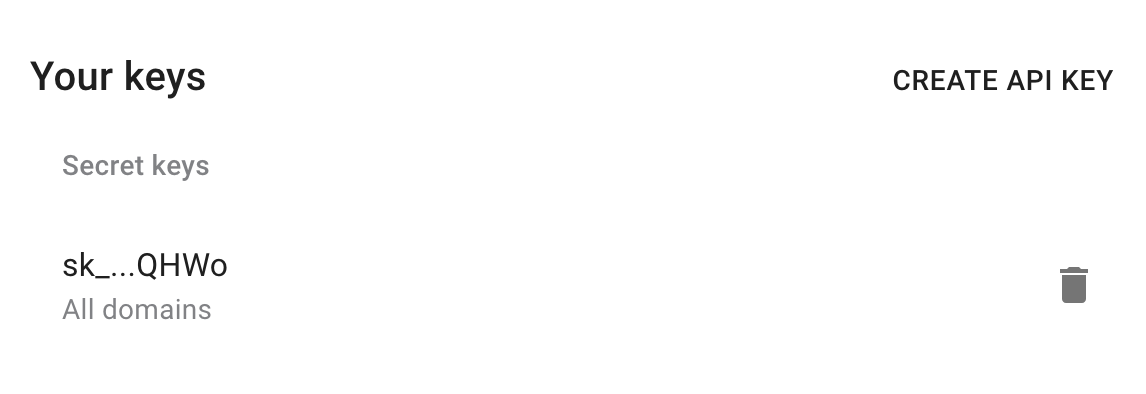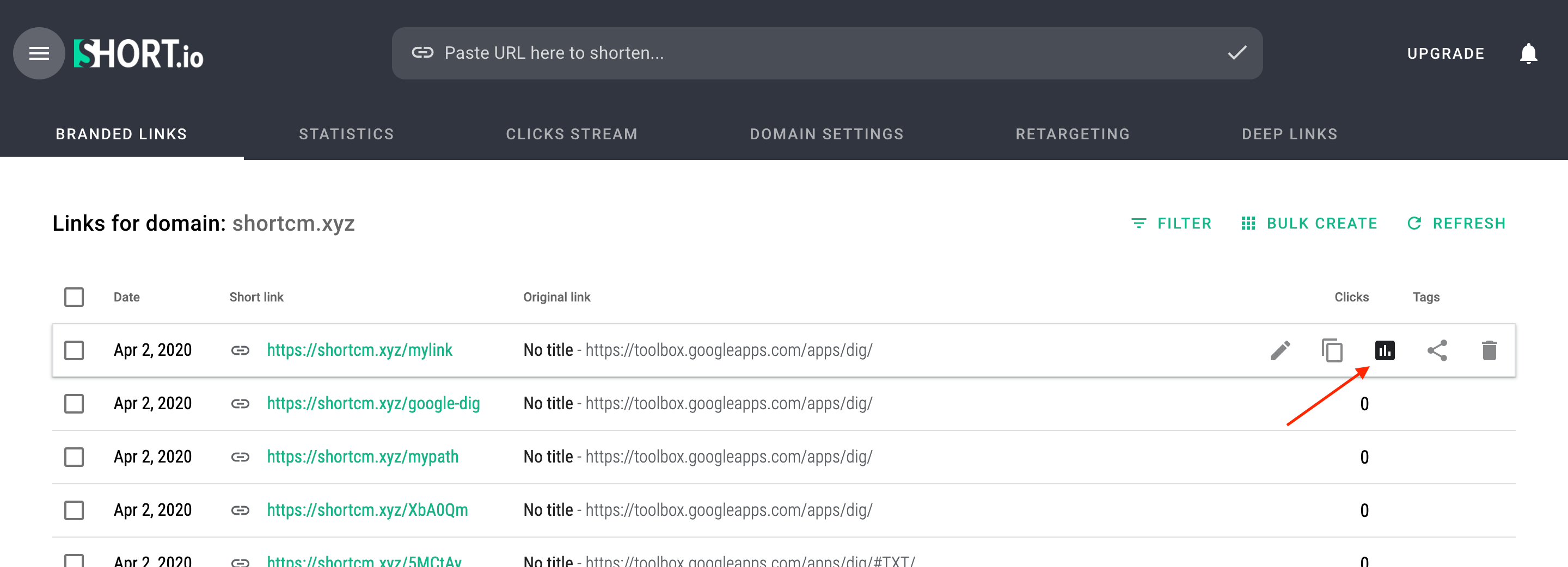Adding Link Expiration to an existing short URL
This method creates an expiration date for an existing short URL
Information below might be outdated - please visit our recently updated API Reference
The instruction below shows how to create an expiration date for an existing short URL.
1) Get your secret API key here: https://app.short.io/settings/integrations/api-key
- Click "Create API key".
- Add a Secret key.

2) Copy an ID of a short link you want to edit.
- Open the statistics of the short link.
- Copy the link ID.


3) Install prerequisites for requests.
pip install requestsnpm install --save axiosNow everything is ready to run the following snippet. It will create an expiration date and an expired URL for an existing short link.
4) Create a file: filename.py/ .js/ .rb. Use the code snippet below.
Please, replace LINK_ID, expiresAt and expiredURL with appropriate values.
import requests
import time
import datetime
url = "https://api.short.io/links/LINK_ID"
import json
payload = json.dumps({"expiredURL":"https://analytics.google.com/analytics/web/", "expiresAt": time.mktime(datetime.datetime.strptime("22.05.2020 15:56:53", "%d.%m.%Y %H:%M:%S").timetuple()) * 1000 })
headers = {
'accept': "application/json",
'content-type': "application/json",
'authorization': "<<apiKey>>"
}
response = requests.request("POST", url, data=payload, headers=headers)
print(response.text)const axios = require('axios');
const data = {
"expiredURL":"https://analytics.google.com/analytics/web/",
"expiresAt":new Date("2020-05-22T15:56:53").valueOf()
};
const options = {
headers: {
accept: 'application/json',
'content-type': 'application/json',
authorization: '<<apiKey>>'
}
};
axios.post('https://api.short.io/links/LINK_ID', data, options)
.then(function (response) {
console.log(response.data);
})
.catch(function (response) {
console.log(response);
});require 'uri'
require 'net/http'
require 'openssl'
require 'json'
require 'time'
url = URI("https://api.short.io/links/LINK_ID")
http = Net::HTTP.new(url.host, url.port)
http.use_ssl = true
http.verify_mode = OpenSSL::SSL::VERIFY_NONE
request = Net::HTTP::Post.new(url)
request["accept"] = 'application/json'
request["content-type"] = 'application/json'
request["authorization"] = '<<apiKey>>'
request.body = JSON.generate({"expiredURL":"https://analytics.google.com/analytics/web/", "expiresAt": Time.parse("22.05.2020 15:56:53").to_i * 1000})
response = http.request(request)
puts response.read_body5) Launch the file.
python filename.pynode filename.jsruby filename.rb6) JSON Response (link expiration is created).
Once you run the code, you will see the response.
{
id: 280142679,
path: 'CvCZHC',
title: 'Link queries',
icon: 'https://shortcm-icons.s3.us-west-2.amazonaws.com/14ea9cc5e8eb3895967d9461f8e170d5',
archived: false,
originalURL: 'https://developers.short.cm/reference#linksbylinkidpost',
iphoneURL: null,
androidURL: null,
splitURL: null,
expiresAt: '2020-05-22T12:56:53.000Z',
expiredURL: 'https://analytics.google.com/analytics/web/',
redirectType: null,
cloaking: null,
source: 'slack',
AutodeletedAt: null,
createdAt: '2020-04-24T07:50:37.000Z',
updatedAt: '2020-04-27T07:09:25.982Z',
DomainId: 902,
OwnerId: 934,
tags: [],
secureShortURL: 'https://shortc.xyz/CvCZHC',
shortURL: 'https://shortc.xyz/CvCZHC'
}Here's how it looks on Short.io:

Updated 3 months ago
